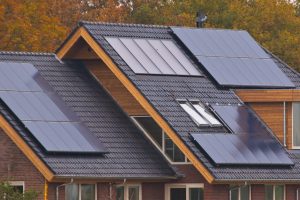Solar energy, also known as solar power, is a key renewable energy source that has gained significant attention in recent years due to its potential to address the escalating energy crisis and mitigate environmental impact. This comprehensive guide aims to provide insights into solar energy, including its definitions, advantages, and facts.
Understanding Solar Energy
Solar energy refers to energy derived from the sun’s radiation. It is harnessed through various solar technologies, such as solar cells and solar panels, to generate electricity or provide thermal energy. This renewable energy source is abundant and sustainable, offering an array of benefits that make it an increasingly attractive option for electricity generation.
What is Solar Energy?
Solar energy, often termed as the sun’s energy, is the radiant light and heat from the sun that is harnessed using solar technologies for practical use. It is an invaluable source of clean and sustainable energy and has the potential to contribute significantly to reducing the world’s dependence on non-renewable energy sources.
Types of Solar Energy
Solar energy exists in various forms, including solar thermal and photovoltaic (PV) solar energy. Solar thermal energy uses the sun’s heat for thermal energy applications, while solar PV directly converts sunlight into electricity using photovoltaic cells. Understanding these different types provides insights into the diverse applications and benefits of solar energy.
The Role of Solar PV
Solar PV, which stands for photovoltaic, plays a crucial role in harnessing solar energy to generate electricity. This technology, commonly found in solar panels, enables the direct conversion of sunlight into electrical energy, making it a key component of many solar projects and energy systems. Exploring the role of solar PV sheds light on its impact on sustainable energy generation and utility-scale solar deployment.
Advantages of Solar Power

There are numerous advantages associated with the use of solar power, making it a compelling choice for meeting energy needs in an environmentally friendly manner. Let’s explore some of the key advantages of solar power.
Clean and Renewable Energy Source
Solar power is a clean and renewable energy source that produces electricity without emitting harmful greenhouse gases. By harnessing the sun’s energy using solar technologies like solar cells and panels, it contributes to reducing the carbon footprint and mitigating the adverse effects of conventional energy sources on the environment. Additionally, solar power offers energy independence and security, as it relies on an abundant and inexhaustible source of energy – the sun.
Energy Storage and Solar Thermal
Energy storage plays a vital role in maximizing the utilization of solar power. Solar thermal technologies effectively capture and store the sun’s heat to produce thermal energy, which can be used for various applications including heating water, space heating, and industrial processes. This capability to store solar energy for later use enhances the reliability and versatility of solar power systems, thereby contributing to a more stable and efficient energy grid.
Solar Parks and Electricity Generation
Solar parks are large-scale installations of solar panels designed to harness considerable amounts of solar energy for electricity generation. Through utility-scale solar deployment, these solar power plants contribute significantly to meeting the energy needs of communities and regions. The electricity generated from solar parks not only reduces the dependence on traditional fossil fuel sources but also contributes to the overall stability and sustainability of energy systems.
Fascinating Facts about Solar Energy
Solar energy has a long and fascinating history, dating back to ancient civilizations like the Greeks and Romans who utilized passive solar architecture to harness the sun’s warmth for heating and lighting. Fast forward to the 19th century, and scientists such as Alexandre Edmond Becquerel began to experiment with photovoltaic effects, laying the groundwork for modern solar technology. From these early developments to the present day, solar energy has made significant strides in efficiency and accessibility, becoming a crucial player in the global energy landscape.
Global Impact and Future Trends
The impact of solar energy on a global scale cannot be understated. With the rising awareness of climate change and the push for sustainable practices, solar energy has emerged as a key player in reducing carbon emissions and transitioning towards cleaner energy sources. The future trends in solar energy point towards increased efficiency, lower costs, and greater integration into various sectors, including transportation and agriculture, further solidifying its role in shaping the future of energy.
Going Solar – Benefits for Individuals and Communities
Embracing solar energy offers a wealth of benefits for both individuals and communities. From reducing electricity bills and increasing property values to fostering energy independence and job creation, the decision to go solar has widespread positive impacts. On a larger scale, the proliferation of solar energy contributes to diversifying energy sources, enhancing grid resilience, and promoting local economic development, making it a win-win for both individuals and communities alike.
Is it time to go solar?
The decision to go solar depends on a variety of factors, including the cost of electricity in your area, the amount of sunlight your location receives, financial incentives or rebates available for solar installation, and your own personal sustainability goals. It may be worth considering solar energy if you are looking to save money on your electric bills in the long term and reduce your carbon footprint. It is recommended to do some research and consult with a professional to determine if going solar is a good option for your specific situation.


